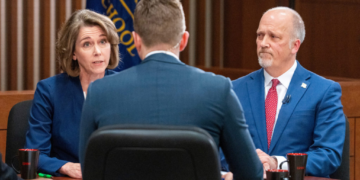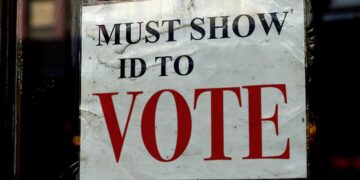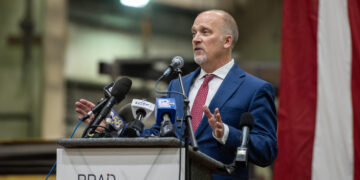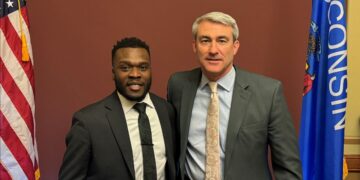Wisconsin Attorney General Josh Kaul has filed felony charges against individuals involved in organizing the state’s alternate electors following the 2020 presidential election. The case has reignited debates over legal protocols in election disputes, with critics framing it as political lawfare targeting Trump allies after his presidency.
The defendants include Jim Troupis, a former Wisconsin judge who represented Donald Trump in 2020, Kenneth Chesebro, an attorney who advised Trump’s campaign, and Mike Roman, Trump’s director of Election Day operations in 2020.
The controversy stems from Wisconsin’s razor-thin margin of victory for Joe Biden in 2020. While Wisconsin’s official electoral votes went to Biden, Trump and his legal team pursued litigation, alleging election irregularities. To keep their case alive under federal law, an alternate slate of electors was required. This practice is not without precedent: in the 1960 Kennedy-Nixon election, alternate electors were used when Hawaii’s results were contested. Ultimately, the courts sided with Kennedy, but the alternate electors ensured his legal challenge was valid.
The Trump electors in disputed states, including Wisconsin, reportedly consulted multiple lawyers to ensure they followed proper procedures. They openly announced their actions in a press conference and sent their certifications to Congress, the National Archives and Records Administration (NARA), and their respective Secretaries of State. Supporters emphasize there was nothing secret, illegal, or deceptive about their actions; all members of Congress were informed that these were contingent, not state-certified, electors.
The Constitution requires electors to vote on the first Monday after the second Wednesday in December and to be certified by their party or candidate. The Trump electors complied with these requirements, asserting their role as contingent electors in the event of a legal reversal of Biden’s victory. Proponents argue the media has falsely portrayed this process as underhanded, despite its clear legal and procedural basis.
Critics of Kaul’s case argue that the alternate electors in Wisconsin were following a lawful and necessary process. By submitting their votes, they preserved Trump’s ability to litigate the election outcome—a right guaranteed by the Constitution. Labeling them as “fake electors,” they say, distorts the intent and history of the practice. Moreover, opponents of the lawsuit claim it is politically motivated, aiming to chill dissent and score points against Trump allies.
Supporters of Kaul’s actions, however, argue that the alternate electors undermined public trust in elections and contributed to the chaos surrounding January 6, 2021. They contend that this case is essential to ensuring accountability and deterring future efforts to contest certified election results.



























